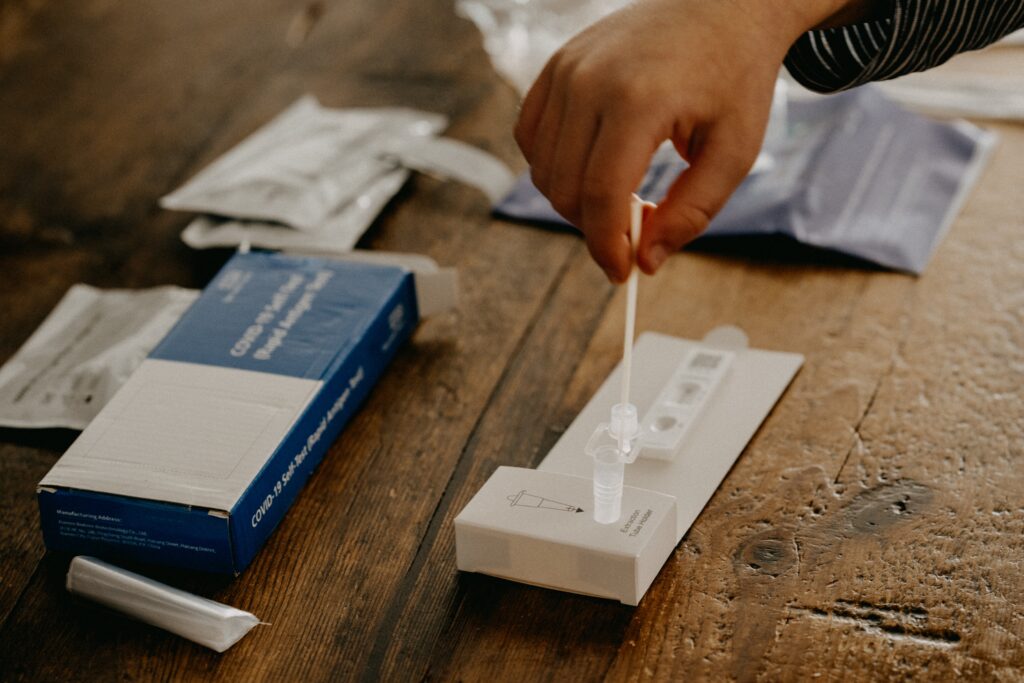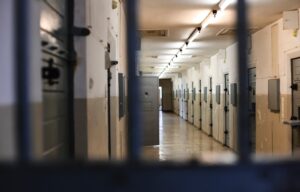Early in the COVID-19 pandemic, people hoped that the pandemic would end through ”herd immunity,” a scenario in which most people have antibodies from vaccination or prior infection and the virus slowly stops spreading because there are few new individuals to infect.
A new USC study in JAMA Network Open shows that’s unlikely to happen. The study estimates that in April of 2021 – before the delta and omicron surges — about 72% of adults in Los Angeles County had been vaccinated or had antibodies for COVID-19 through past infection. Despite this high level of potential protection from COVID-19, the county experienced significant surges in COVID-19 cases, with a near doubling of cases since April of last year.
“Given that new variants continue to result in significant surges– even in a place like L.A. County which had some of the strictest mask mandates and most expansive testing capacity in the country – we need to pivot our pandemic response from minimizing infections to minimizing the harm from infections,” said Neeraj Sood, director of the COVID Initiative at the USC Schaeffer Center for Health Policy & Economics.
Sign up for Schaeffer Center news
The researchers found that Black adults and individuals from lower income households had much lower rates of protective immunity overall, despite having higher rates of antibodies from past infection. “These communities were hit on both sides: they generally had lower vaccination rates, especially in the first few months that vaccines were available, and they also were harder hit by the earlier waves of COVID,” explained Sood, who is also a professor at the USC Price School of Public Policy.
Disparities laid bare
“The COVID-19 has laid bare severe health disparities in Los Angeles. Going forward we need to redouble our efforts to reduce these disparities,” said Howard Hu, Flora L. Thornton Chair of the Department of Population and Public Health Sciences at Keck School of Medicine of USC.
Sood and Hu’s research team established eight testing sites throughout L.A. County. A representative sample of residents were invited to participate, and testing was offered for two weeks in mid-April 2021. In total,1,335 adults were tested for COVID-19 antibodies. The researchers used statistical methodology to adjust the results for demographics and vaccination rates at the time of the study. The participants will continue to be followed as part of the Los Angeles Pandemic Surveillance Cohort, a project based in the USC COVID-19 Pandemic Research Center and conducted in collaboration with Los Angeles County Department of Public Health.
Overall, 13% of the sample reported having received a positive COVID-19 test at some point. Almost 61% had received at least one vaccine dose. Of unvaccinated adults, almost 29% had antibodies for COVID-19, meaning they previously been infected and had developed some protective immunity. Almost all of the unvaccinated individuals with prior infection had antibodies, even though many participants had infections several months prior to antibody testing.
What will our COVID future look like?
The researchers argue that with these results, policymakers and public health officials should be reconsidering what the long-term goal is and how we should best use our resources.
“Testing the symptomatic, ensuring access to new treatments and encouraging vaccinations for high-risk populations should be the pillars of our pandemic response going forward,” said Sood. “These findings indicate that preventing COVID surges may be increasingly unrealistic, but we can ensure our healthcare system and hospitals have the needed capacity and patients have the care they need.”
Olivier Pernet, Chun Nok Lam, Angela Klipp, Rani Kotha and Andrea Kovacs also coauthored this study. Support for this study was provided by the Conrad N. Hilton Foundation, Office of the President of the University of Southern California, Los Angeles County Department of Public Health, U.S. Centers for Disease Control and Prevention, the Department of Population and Public Health Sciences of Keck School of Medicine of USC, Schaeffer Center for Health Policy & Economics, and Keck Family Foundation.
Related Work
-
Press Release
Traditional Vaccination Playbook Doesn’t Work with COVID



